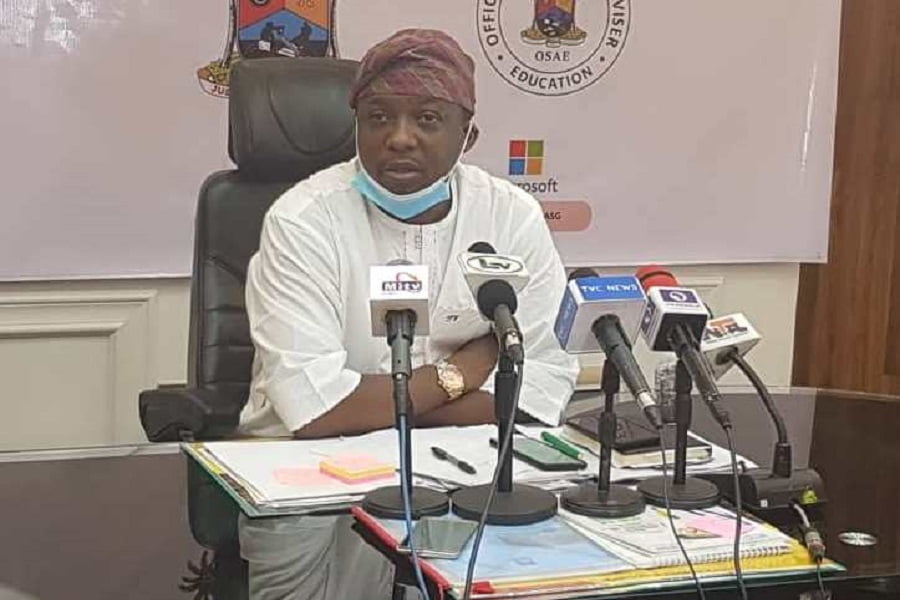At least 10,560 youths have registered for the Lagos State Government’s employability programme, tagged: ‘Jobs Initiative Lagos.’
The programme is aimed at preparing the applicants to become entrepreneurs in the state.
The initiative, through which the government targets to empower one million students in digital skills by 2023, was designed as a complementary training for students in terminal classes and graduates in entrepreneurship, employability, and basic digital skills required for the workplace.
Special Adviser to the Governor on Education, Tokunbo Wahab, at a news conference in Lagos on Wednesday said over 3,000 youths were expected to register this week for the initiative introduced to bridge youths skill-gap in the employment market.
Wahab said government had also introduced a digital training platform, known as Digital Skills Initiative Lagos’, to prepares students for the global emerging market.
According to him, “Over 10,560 undergraduates from the state’s tertiary institution since the programme kicked off have enrolled and from the statistics made available to me, over 3,000 applicants are expected to come on board for this programme.
“The need to enhance employability of graduates across the states birthed the initiative which had been programmed to run alongside a more robust digital skills campaign ‘Digital Skills Initiative Lagos’ aimed at equipping the graduates and final year students of state-based tertiary institutions with digital skills needed in the 21st century and invariably position Lagos as the Tech Hub of Africa.”
The special adviser listed skills that would be taught in serving as a propeller for students into a new world of the fourth revolution which is the IT revolution to include, coding, phyton, data security, data analytics among others, stressing that the undergraduates who are mainly final year students would be put through 13 weeks intensive sessions.
“Mr Governor has also approved a Phase II for the DSIL, and I will tell you why we are doing that. We have done research in Lagos and we realised we have a lot of youths who have between school certificate and OND certificate, and Lagos with its population especially the youths believed that they can be harnessed to become a tech hub of Africa in the 21st century.
“We are trying to maximize their full potentials and by so doing there will be job security and not just creating that one million jobs, there will be security in the state because when people are gainfully employed, one of the multiplier effects is that it strengthens your security apparatus. Like they say in the normal parlance that an idle hand is the devil’s workshop, so we will be engaging them and it will be intensive.
“So, for now, the DSIL and JIL Phase I are ongoing, but seamlessly from August, the Phase II will be running concurrently with it, so people will ask but schools are closed? Yes, they are closed but running online programmes. The SS3 students are going back to schools and we will be using that to engage them before Phase II and we are already doing that with our partners.
“Whereas for the JIL, thankfully also, all our institutions in Lagos State including our College of Nursing and Midwifery, Lagos State University College of Medicine (LASUCOM), Lagos State University (LASU), Lagos State Polytechnic (LASPOTECH), Adeniran Ogunsanya College of Education (AOCOED), Micheal Otedola College of Primary Education (MOCPED) and Lagos State College of Health Technology are all online and we are the only state in the country that have been able to achieve this feat for the past three months,” he said.
Wahab added that “What the JIL will give them is to create a platform and onboard them on its own platform and as at last week, they have on board 10,560 and by this week, I believe they are onboarding over 3000. We are also creating avenues for some our ministries and MDAs and we’ve allotted about 1000 to our Ministry of Youths and Social Development specifically for a purpose because that ministry deals with our young elements and people that have delinquency in correctional homes run by the state, so we are also giving them a platform, a window to reabsorb them for becoming gainfully employable citizens of our state and that is where we are today.”

